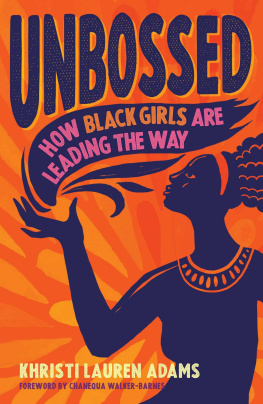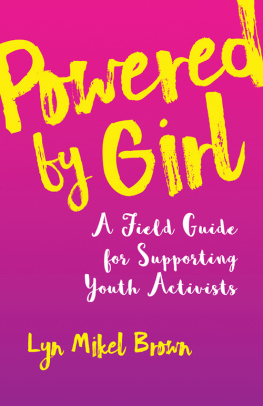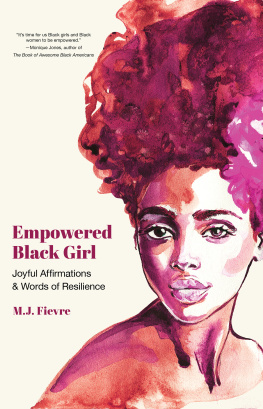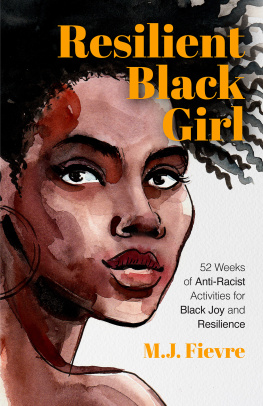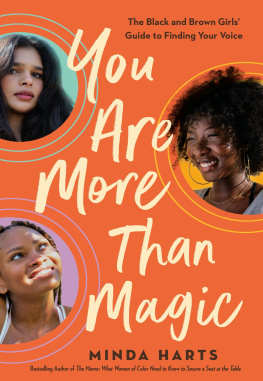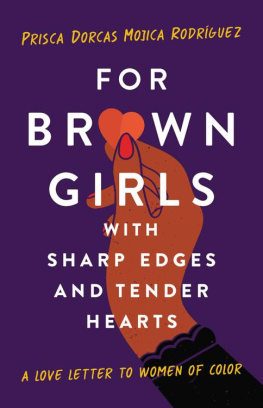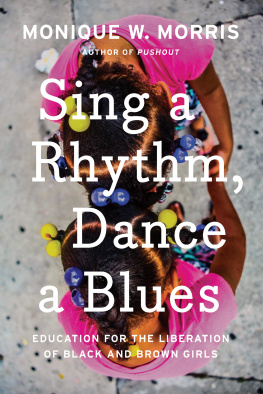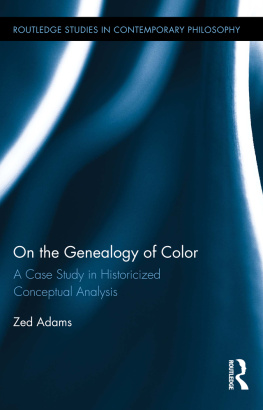PARABLE OF THE BROWN GIRL
THE SACRED LIVES OF GIRLS OF COLOR
Khristi Adams
Fortress Press
Minneapolis
PARABLE OF THE BROWN GIRL
The Sacred Lives of Girls of Color
Print ISBN: 978-1-5064-5568-6
eBook ISBN: 978-1-5064-5569-3
Copyright 2020 Fortress Press, an imprint of 1517 Media.
All rights reserved. Except for brief quotations in critical articles or reviews, no part of this book may be reproduced in any manner without prior written permission from the publisher.
Email copyright@1517.media or write to Permissions, Fortress Press, PO Box 1209, Minneapolis, MN 55440-1209.
The names of the people included in this book have been changed to protect their identities.
Cover design: Josh Dingle, LoveArts
F or all the brown-skinned black girls who courageously shared their story, their wisdom, and their truths with me.
Society may put you on the margins, but you are at the center of Gods heart.
CONTENTS

Exactly one week after I signed the contract with Fortress Press to write this book, one of the most important people in the world to me passed away. It is only fitting I begin by acknowledging the person who was on my mind every single day for the nine months it took me to write this book.
Roy Andre Drakeford, aka Mugga.
I didnt imagine how it would feel to write through grief, but the words for this book came to me as I was experiencing a profound loss. Somehow, I got through it. I can only believe I was able to because of Gods spirit and the impeccable work ethic Mugga passed on to me. I not only acknowledge you, Mugga, for this book, but I also acknowledge you for my entire life. I was an insecure, angry, and broken fifteen-year-old black girl when we met. Your love and friendship breathed life into me. We had fun, we laughed, we cried, and you loved this black girl into wholeness. I will never forget you. I owe you my life, and I will love you always from now until eternity.
Mom and Dad, if I had only written a handful of words in this book, you both still would have put the support of ten thousand angels behind me with your unconditional love. There are no real words of gratitude I can write to thank you for my very existence, for listening to all my big ideas, for supporting those ideas, for attending every event, for financing every project, for catching me when I fall, and for loving me through every failure and mistake. I am forever indebted to you. I do not take for granted that you, like Christ, are an expression of Gods love for me.
To Valerie Weaver-Zercher, Emily Brower, and Fortress Press. Thank you for taking a chance on this black girl and subsequently supporting and acknowledging the significance of all of the black girls in this book. Thank you for your gracious and constructive thoughts, affirmations, and critiques to help bring out the message and potential of this book.
Finally, to all of my friends, family, mentors, and community of supporters who have been my cheering squad before, during, and long after this book is finished. If the company we keep is a reflection of who we are, then I am proud to be a reflection of each and every one of you.

People resist by... telling their story.
bell hooks
Jesus Christ did some of his most valuable teaching in parables. His parables presented clear stories from everyday circumstances where the listener would be met by the spirit of God alongside plain truths. In thinking on the times in my life when I have had those same profound encounters, those moments have undoubtedly been in my interactions and conversations with black girls. Consequently, I have often wondered what these parables would have looked like with black girls at the center. Parable of the Brown Girl explores the everyday lives of black girls and is written in a way that parallels some of the characteristics of the parables of the gospels. For starters, the names of Jesuss parables usually emphasize an important feature of either the central character(s) of the parable or theme. In staying true to that manner, I created this book title with an emphasis on the color of the girls skin, which many would distinctly see as brown. I specifically use the phrase brown girl in the book and chapter titles to highlight the variety of hues the girls have in their skin complexions. However, when referencing the girls throughout the content of the book, I refer to them as black. Racially classified, they are black; aesthetically the girls are shades of brown.
In each place my career has taken me, I have had the opportunity to develop powerful relationships with black girls. My life has been significantly impacted for the better by listening to these girls. My conversations with them have changed how I see God and how I see the world around me. The first of these experiences happened when I graduated from college. I worked briefly at a residential treatment facility where I was placed on a unit for teenaged girls suffering from severe emotional difficulties. Although I was only a twenty-one-year-old recent graduate whod spent the previous four years of college studying advertising, the hiring process for this position as a residential counselor was effortless. However, the turnover rate for this position was at about 70 percent. I didnt understand the reasons for this high percentage until I stepped foot onto the unit for the first time and looked into the faces of nine angry black girls. They were angry with the world around them for letting them down. They were angry for being left and forgotten in this jail-like facility in a remote corner of the country, and they wanted everyone they encountered to feel that same anger.
As a staff, we were trained to meet the girls coldness with coldness. We had strict instructions not to get into overt close relationship with the girls, though we could do so subtly. During my first month there, I worked hard to enforce the rules, maintaining strict boundaries with the girls and making sure they respected my authority. The girls didnt care about any of those things. To them, I was just another person who was there for a paycheck and who would likely leave them soon. They tested me, cursed at me, manipulated me, and disrespected me every chance they got. After a while, I began to understand why the turnover rate was so high.
One night while completing my evening notes before my shift was over, I decided to take a look through some of the girls binders. Each had a binder full of notes written by the staff. The binders also contained background information on the girls. Each girl had her own story. I read nine-year-old Leticia had once been beaten with a baseball bat by her mom. I read ten-year-old India had been sexually abused by her own father. I read seven-year-old Nikki had been burned with cigarettes for misbehaving in the house. It was like perusing a book with pages no one would ever see. I remember feeling nauseous reading each of the horrifying stories. These girls were far more than bad kids who needed to be locked up in order to behave.
That was the first time I sensed the call God placed on my life to build relationships and work as an advocate for black girls who often find themselves on the margins. After learning their stories, everything about my entire approach to working with those nine girls changed. I spent the next few months getting to know each girl personally. I listened to them share their stories. I watched them get so angry, staff would have to physically carry them to their rooms so they would calm down. I watched them laugh with black girl joy with each other in random moments as if theyd forgotten they were locked away. I saw the pain on their faces when family would say they were coming to visit and then failed to show up at the last minute. I worked so many hours there were times I would tuck the girls in at night, go home to sleep, and then be back the next morning in time to wake them up. I stopped treating the girls like a job or like they were inmates, and the girls began to let their guards down more and more. They nicknamed me Advocate because that was what they called staff they trusted. They showed me pictures of their families and we stayed up at night talking about their crushes on boys and which staff they couldnt stand. Sometimes, we talked about God and prayer, and we would pray together at night before it was time for lights out.


